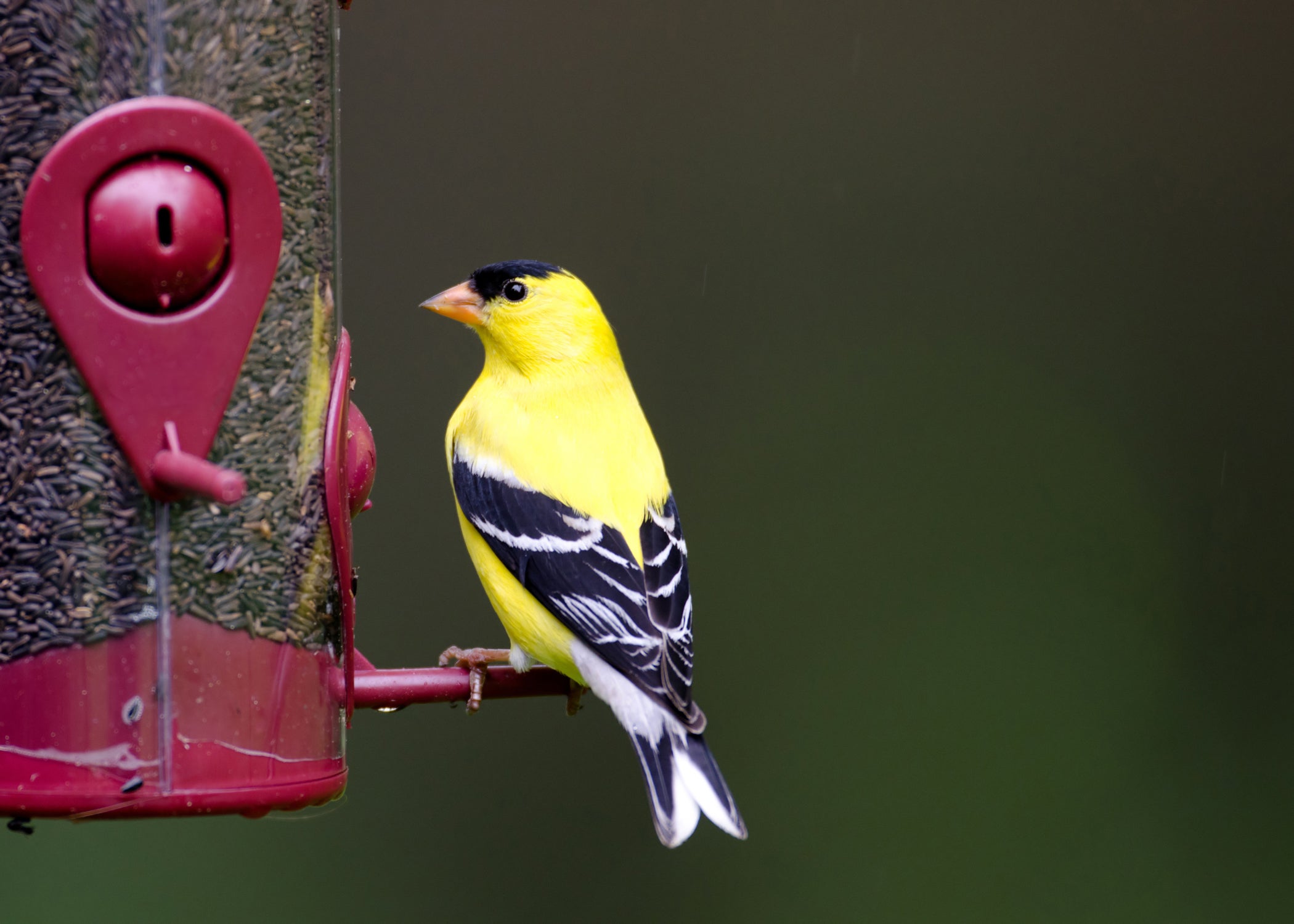Best practices can protect birds, humans from illness
Published 3:15 pm Thursday, April 22, 2021

- CUTLINE: American goldfinches are one species of songbird that can be affected by salmonella infection. People who provide food and water for wild songbirds can reduce the possibility of disease spread by regularly rotating feeder stations and properly cleaning feeders and birdbaths year-round. (Photo by Can Stock, Inc./EEI_Tony) ALT-TEXT: An American goldfinch sits on a bird feeder.
By Susan Collins-Smith
MSU Extension Service
RAYMOND, Miss. — Mississippians concerned about the number of dead songbirds being found near feeders can use this opportunity to learn best practices to follow when offering birds food and water.
The U.S. Centers for Disease Control and Prevention in March confirmed 19 people in eight states, including one person in Mississippi, were diagnosed with the same strain of salmonella that has sickened or killed songbirds. Human illnesses began in December 2020 after contact with contaminated bird feeders, dead birds or pets that had access to areas frequented by birds.
But Mississippi scientists cannot say for sure if deaths of Mississippi birds were caused by salmonella infection.
“I had lots of calls about dead birds after the freezing weather in February,” said Dr. Martha Pulido Landinez, a scientist with the Mississippi State University College of Veterinary Medicine’s Poultry Research and Diagnostic Laboratory in Pearl.
“We have no funding for running tests on songbirds, and none of the callers wanted to pay the $70 fee to run the tests. Although there may have been some salmonella cases in Mississippi, we had no diagnosed cases,” said Pulido Landinez, who is also an associate clinical professor of avian medicine at the college.
How Salmonella Infects Birds
Adam Rohnke, a wildlife biologist with the MSU Extension Service, said the potential of salmonella transmission increases if the bacteria is present in the same area where large numbers of birds congregate.
“This year, our cold and icy weather in mid-February, combined with the timing of the pine siskin migration, meant that people had lots of birds at their feeders at once because it was hard for them to find food in the wild for several days,” Rohnke said. “In that situation, if you have just one sick bird, it can potentially infect many more.”
Salmonellosis, the disease caused by salmonella bacteria, spreads when healthy birds are exposed to objects or ingest food and water contaminated with feces from sick birds. The illness most often affects pine siskins, but American goldfinches and lesser goldfinches can also can be infected.
“But just because a bird was showing signs of being weak or sick after the storm doesn’t mean it was salmonella or another disease,” Rohnke said. “It’s much more likely the bird was suffering from stress because of harsh weather conditions and limited natural sources of food and available water.”
How to Prevent Illnesses in Birds
There are steps people can take to help reduce the spread of illness among songbirds.
Rohnke said people who provide feeders and water sources for birds should regularly rotate feeder stations and clean feeders and birdbaths year-round, even if birds appear healthy. These measures are the best way to prevent salmonellosis and other illnesses in birds caused by viruses and bacteria.
“It’s ideal to have at least two areas in your yard for bird feeders so that you can move the feeders once a week,” he said. “It doesn’t have to be a long distance. Moving them just 20 to 30 feet is enough. Regularly removing the seed that falls to the ground also helps.”
Rohnke recommends following CDC guidelines for cleaning and disinfecting bird feeders:
1. Clean bird feeders outside with warm, soapy water. Use a brush to remove fecal and seed residue. An old toothbrush works great. Rinse well.
2. Soak bird feeders in a bleach solution of nine parts water to one part bleach for 10 minutes. Rinse well and let dry.
3. Wash hands well with soap and water after cleaning feeders.
To minimize the possibility of pets spreading salmonella to humans, the CDC recommends keeping the animals away from bird feeders, birdbaths and the areas underneath them. People should always wash hands with soap and water after handling bird feeders, birdbaths and dead birds, as well as, after touching pets or their toys, food and bowls.
The MSU Poultry Research and Diagnostic Laboratory can test dead songbirds to determine the cause of death. If interested in submitting wild birds for diagnostics, contact the lab at 601-420-4700 for additional instructions.
People who want to submit a bird for testing should follow these initial steps for collection:
1. Use disposable gloves to pick up the bird and place it in a plastic bag. Place that plastic bag in a second plastic bag.
2. Place the double-bagged bird in the refrigerator if it cannot be transported to the lab immediately. Do not freeze it.
3. Place the bagged bird in a cooler when mailing or transporting to the lab.
4. Wash hands with soap and water after handling the bird.




